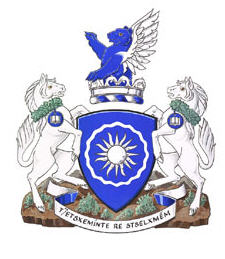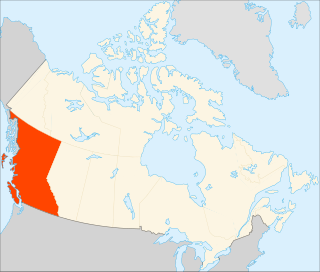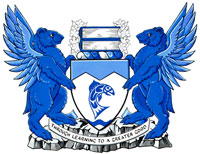
Simon Fraser University (SFU) is a public research university in British Columbia, Canada, with three campuses, all in Greater Vancouver: Burnaby, Surrey, and Vancouver. The 170-hectare (420-acre) main Burnaby campus on Burnaby Mountain, located 15 kilometres (9.3 mi) from downtown Vancouver, was established in 1965 and comprises more than 30,000 students and 160,000 alumni. The university was created in an effort to expand higher education across Canada.

The University of British Columbia (UBC) is a public research university with campuses near Vancouver and Okanagan in British Columbia, Canada. Established in 1908, it is the oldest university in British Columbia. With an annual research budget of $773 million, UBC funds over 10,000 projects a year.

Lakehead University is a public research university with campuses in Thunder Bay and Orillia, Ontario, Canada. Lakehead University, shortened to 'Lakehead U', is non-denominational and provincially supported. It has undergraduate programs, graduate programs, the Bora Laskin Faculty of Law, the only internationally accredited (AACSB) business school in northern Ontario, and is home to the western campus of the Northern Ontario School of Medicine.

Algonquin College of Applied Arts and Technology is a publicly funded English-language college located in Ottawa, Ontario, Canada. The college has three campuses, all in Ontario: a primary campus located in Ottawa, and secondary campuses located in Perth and Pembroke. It offers bachelor's degrees, diplomas, and certificates in a range of disciplines and specialties. The college serves the National Capital Region and the outlying areas of Eastern Ontario, Western Quebec, and Upstate New York. It has been ranked among the Top 50 Research Colleges in Canada and has been recognized as one of Canada's top innovation leaders. The enabling legislation is the Ministry of Training, Colleges and Universities Act. It is a member of Polytechnics Canada.

Vancouver Island University is a Canadian public university serving Vancouver Island and coastal British Columbia. Malaspina College began in 1969 and it has grown into a university which plays an important role in the educational, cultural, and economic life of the region. The main campus is located in Nanaimo; there are regional campuses in Duncan and Powell River as well as a centre in Parksville.

Trinity Western University (TWU) is a private Christian liberal arts university with campuses in both Langley and Richmond, British Columbia. The school is a member of Universities Canada.

Brandon University is a university located in the city of Brandon, Manitoba, Canada, with an enrolment of approximately 3,375 (2020) full-time and part-time undergraduate and graduate students. The current location was founded on July 13, 1899, as Brandon College as a Baptist institution. It was chartered as a university by then President John E. Robbins on June 5, 1967. The enabling legislation is the Brandon University Act. Brandon University is one of several predominantly undergraduate liberal arts and sciences institutions in Canada.

Thompson Rivers University is a public teaching and research university offering undergraduate and graduate degrees and vocational training. Its main campus is in Kamloops, British Columbia, Canada, and its name comes from the two rivers which converge in Kamloops, the North Thompson and South Thompson. The university has a satellite campus in Williams Lake, BC and a distance education division called TRU-Open Learning. It also has several international partnerships through its TRU World division. TRU is accredited by the Northwest Commission on Colleges and Universities (NWCCU) at the associate, baccalaureate and master's degree levels.

Quest University was a private, not-for-profit, secular liberal arts and sciences university. The university opened in September 2007 with an inaugural class of 73 and suspended academic operations in April 2023. The university had an enrolment of around 200 students around the time of its closing.
Georgian College is a College of Applied Arts and Technology in Ontario, Canada. It has 13,000 full-time students, including 4,500 international students from 85 countries, across seven campuses, the largest being in Barrie.

Emily Carr University of Art + Design is a public art and design university located on Great Northern Way, in the False Creek Flats neighbourhood of Vancouver, British Columbia, Canada.

St. Lawrence College (SLC) is a College of Applied Arts and Technology with three campuses in Eastern Ontario, namely Brockville (1970), Cornwall (1968) and Kingston. It is affiliated with private Alpha College of Business & Technology in Toronto and Canadian College in Vancouver.

The University of the Fraser Valley (UFV), formerly known as University College of the Fraser Valley and Fraser Valley College, is a Canadian public university with campuses in Abbotsford, Chilliwack, Mission and Hope, British Columbia. Founded in 1974 as Fraser Valley College, it was a response to the need for expanded vocational training in the communities of the Fraser Valley. In 1988, it became a university college, with degree-granting status. As the University College of the Fraser Valley, it grew rapidly, becoming one of the largest university colleges in Canada.
North Island College (NIC) North Island College (NIC), is a community college located primarily on Vancouver Island, British Columbia, Canada.

Vancouver Community College (VCC) is a public community college in Vancouver, British Columbia, Canada. Founded in 1965, it is the oldest community college in British Columbia. VCC offers 79 certificate programs, 24 diploma programs, 9 award of achievement programs, 8 apprenticeship programs, 4 statement of completion programs, 3 bachelor's degree programs and 2 associate degree programs. VCC has two campuses: Broadway and Downtown.

Squamish is a Coast Salish language spoken by the Squamish people of the Pacific Northwest. It is spoken in southwestern British Columbia, Canada, centred on their reserve communities in Squamish, North Vancouver, and West Vancouver. An archaic historical rendering of the native Sḵwx̱wú7mesh is Sko-ko-mish but this should not be confused with the name of the Skokomish people of Washington state. Squamish is most closely related to the Sechelt, Halkomelem, and Nooksack languages.

The shíshálh language, sháshíshálh,she shashishalhem, or Sechelt language, is a Coast Salish language that originates and is spoken within the swiya of the shíshálh Nation, located on the Sunshine Coast in southwestern British Columbia, Canada.
The University of British Columbia Okanagan is a satellite campus of the University of British Columbia in Kelowna, British Columbia, Canada.

Higher education in British Columbia is delivered by 25 publicly funded institutions that are composed of eleven universities, eleven colleges, and three institutes. This is in addition to three private universities, five private colleges, and six theological colleges. There are also an extensive number of private career institutes and colleges. Over 297,000 students were enrolled in post-secondary institutions in British Columbia in the 2019-2020 academic year.
Columbia College is an independent not-for-profit two-year university transfer college located in Vancouver, British Columbia, Canada. The college is a registered charity and an incorporated Society composed of all Columbia College employees.

















